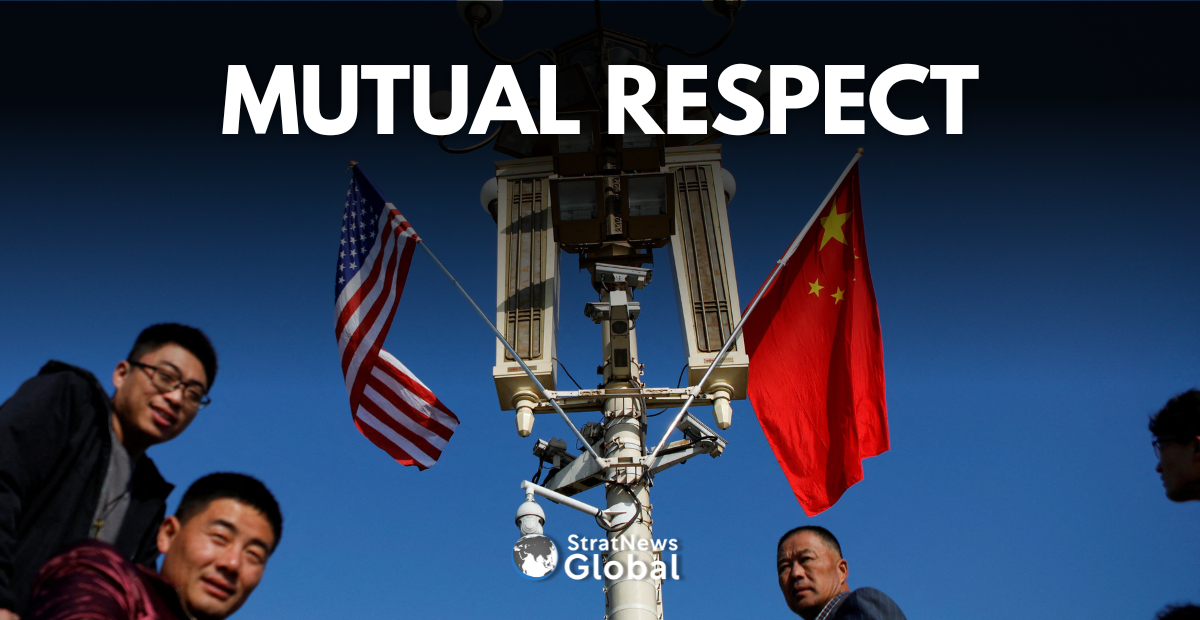China will work with the U.S. on the basis of mutual respect, it said on Wednesday after Donald Trump claimed victory in the presidential election, but strategists said Beijing was bracing for bitter superpower rivalry over trade, technology and security issues.
“Our policy towards the U.S. is consistent,” foreign ministry spokesperson Mao Ning told a regular press conference in Beijing, when asked how Trump returning to the Oval Office would affect U.S.-China relations.
Consistent Policy
“Our policy towards the U.S. is consistent,” spokesperson Mao Ning told a regular press conference in Beijing, when asked how Trump returning to the Oval Office would affect U.S.-China relations.
“We will continue to view and handle China-U.S. relations in accordance with the principles of mutual respect, peaceful coexistence and win-win cooperation,” she added.
China sells goods worth more than $400 billion annually to the U.S. and hundreds of billions more in components for products Americans buy from elsewhere.
Analysts say the prospect of a trade war has rattled China’s leadership, who have lent heavily on exports to drive growth as consumers hold off spending in the ailing $19 trillion economy.
Trump’s Claimed Victory
As Republican Donald Trump claimed victory in the U.S. presidential election, defeating Democrat Kamala Harris, China is bracing for four more years of bitter superpower rivalry over trade, technology and security issues.
Trump showed strength across broad swathes of the country, earning a bigger share of the vote nationwide than he did four years ago, ballots showed.
Chinese strategists said that while they expected more fiery rhetoric and potentially crippling tariffs from Trump, some said his isolationist foreign policy could give Beijing a vacuum to expand its global influence.
“Beijing anticipated a close race in the U.S. election. Although Trump’s victory is not China’s preferred outcome and raises concerns, it is not entirely unexpected,” said Tong Zhao, senior fellow at the Carnegie Endowment for International Peace.
“The Chinese leadership will likely strive to maintain an appearance of a cordial personal relationship with Trump, while intensifying efforts to project China’s power and strength.”
Trump Tariff Threat
China sells goods worth more than $400 billion annually to the U.S. and hundreds of billions more in components for products Americans buy from elsewhere.
“Beijing is particularly wary of a potential revival of the trade war under Trump, especially as China currently faces significant internal economic challenges,” said Zhao.
“China also expects Trump to accelerate the decoupling of technologies and supply chains, a move that could threaten China’s economic growth and indirectly impact its social and political stability.”
In response, China is likely to intensify its push for greater technological and economic self-sufficiency, while feeling more pressure to bolster economic ties with countries like Russia, he added.
“Going forward, Beijing would likely be drawing up a list of clear bargains and interest tradeoffs that it could float with Washington, in hope that it can focus on its much needed domestic economic concerns whilst Trump’s attention is occupied elsewhere,” said Brian Wong, assistant professor at the University of Hong Kong who studies grand strategy.
Global Power Vacuum
Trump has threatened to go further than his first term when he implemented a sometimes chaotic approach to China that plunged the world’s two biggest economies into a trade war.
But just as before, Trump has presented a mixed message, describing Chinese President Xi Jinping as “brilliant” for ruling with an “iron fist”.
Trump has also insisted that Taiwan should pay the U.S. for defence. But he has said China would never dare to invade democratically governed Taiwan, which Beijing claims as its territory, if he were president.
For more election coverage, watch our live here.
(with inputs from Reuters)
